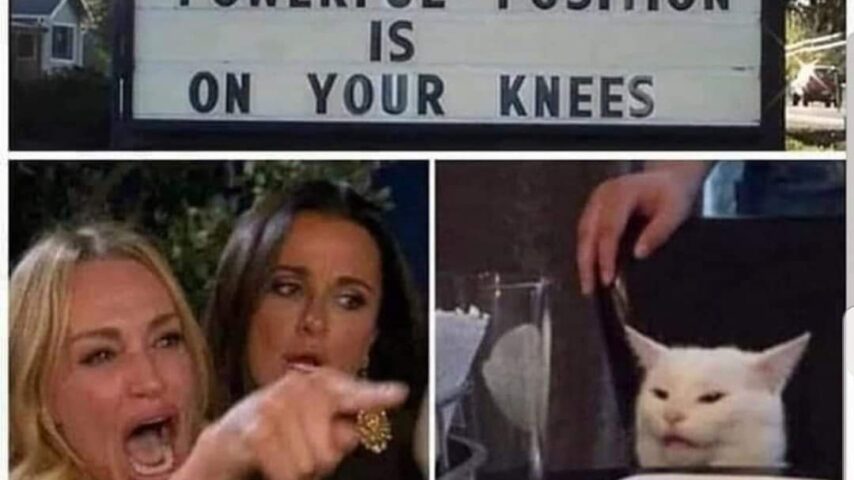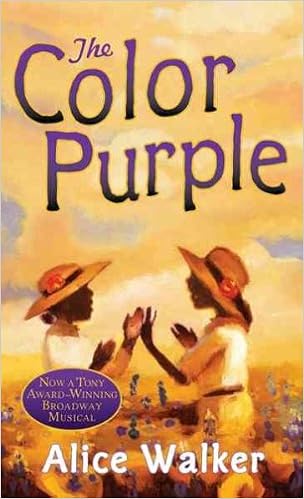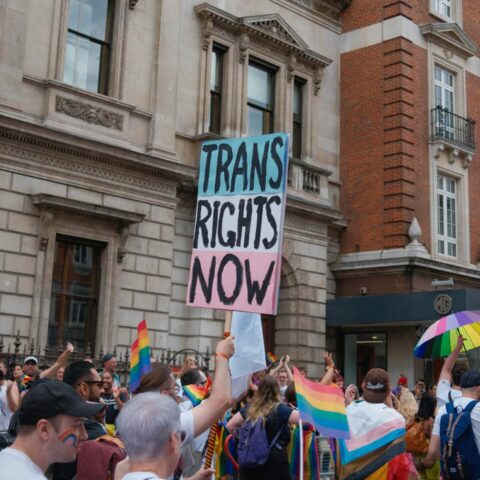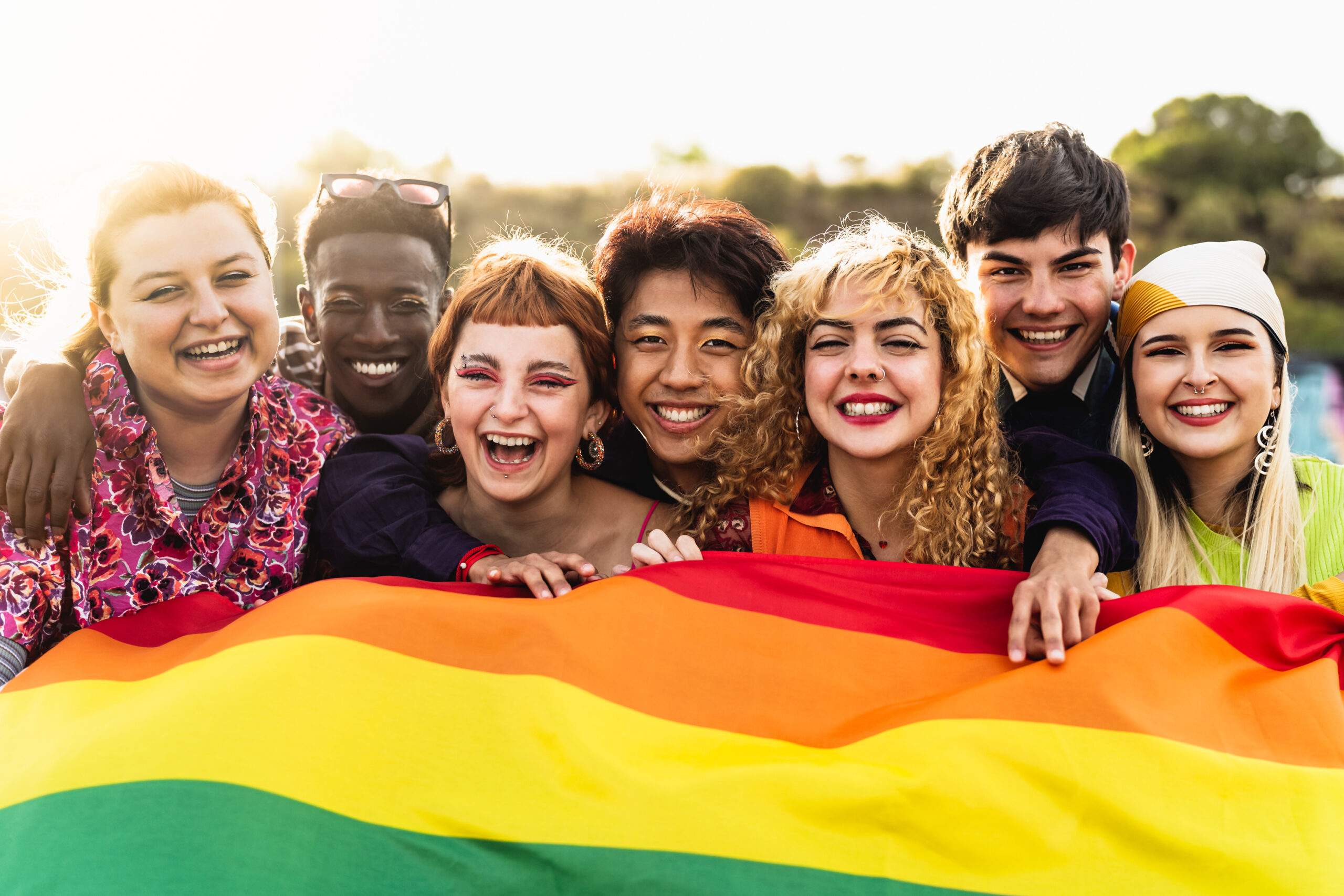What The Color Purple Taught Me About Sexual Freedom

Trigger warning: rape/incest
Before I officially started writing for the Our Folks blog, I was asked to send in some answers to a few questions. One of those questions was: What is your favorite sex scene from a movie or a book?
When answering, I listed off a few examples but the most prominent scene I wrote about was Celie and Shug Avery’s sex scene in The Color Purple.
As I was thinking of pieces to write for this term, I revisited my answers and decided that this was the one I wanted to expand on. Not for you, the reader, to gain a deeper insight into my taste (although I’m okay with that too), but because I believe that discussions of sexual freedom are essential to reproductive justice and this scene set me free sexually.
If you are not familiar, first of all, you’re missing out! The Color Purple was written by Alice Walker in 1982 and later revived both as a movie in 1985 and a broadway musical in 2005. So if you haven’t read or seen any of these adaptations, exit this piece, go find the book, and get your priorities straight!
But…in case you needed a little refresher (or you don’t mind spoilers), The Color Purple follows the story of Celie, a black woman living in Georgia during the 1930s, who is raped by a man she believes to be her father. Eventually, she escapes and marries Mr. _____, despite struggling to heal from her traumatic experiences.
Through a series of diary entries (addressed to God) and letters between Celie and her sister (who escapes her abusive stepfather by becoming a missionary in Africa), readers get an inside look into Celie’s healing journey.
A major turning point is demonstrated when Celie meets Shug Avery- her husband’s girlfriend. Together, they help each other heal from their trauma, extend that healing to the black community surrounding them, and eventually extend it to the reader, as well. Personally, their story was monumental to healing me, both as a queer black woman and sexual violence survivor.
So, now that we have the foundation of the plot, it’s time to discuss specifically how this book set me free, and what it can teach us about sexual liberation! For this blog, I am defining sexual liberation with a heavy emphasis on black women, femmes, nonbinary people, and anyone else whose sexuality has historically been policed.
- The Color Purple taught me that sexual liberation means women and womanish people (as Alice Walker would say) loving and supporting each other.

The first time I read The Color Purple, I was shocked by many aspects of Shug and Celie’s relationship; Shug was the long-time and favorite on-again-off-again girlfriend of Celie’s husband. And yet, Shug and Celie never tried to compete for Mr.____’s love.
This narrative is different than the one society typically feeds us.
As reflected in Chimamanda Ngozi Adichie’s TEDTalk speech “We should all be feminist” (and sampled in Beyonce’s “Flawless”) the message we’re presented says that women are “expected to aspire to marriage…and…to make life choices always keeping in mind that marriage is the most important.”
The narrative continues, suggesting that “We raise girls to each other as competitors. Not for jobs or accomplishments…but the attention of men. We teach girls that they cannot be sexual beings in the way that boys are.”

Although it was later proven that Adichie was problematic in some ways, I still believe that there’s truth behind her message. Women are, undoubtedly, expected to compete for men’s attention and prioritize marriage in a way that men are not.
Because of this, I expected Celie to convey jealousy towards Shug. But, instead of competing with her, Celie worships and protects Shug. Celie spits in her father-in-law’s drink when he makes snide comments about Shug and expresses that her husband should have defended Shug when nasty comments are made about her in church. In many ways, their relationship is love at first sight.
Personally, my most liberating sexual experiences have also been with women- especially black women (and to some extent other non-men who identify with black womanhood, such as agender folks, nonbinary femmes, and soft bois).
I’ve found that these experiences have allowed both myself and others to be freed from the constraints of patriarchy- if not forever, at least for the moments when we were together.
I would also like to clarify that by sexual experiences I don’t necessarily mean the act of having sex, although I am including that. In many of these cases, the sexual liberation—or at least the steps towards sexual freedom— that I’m describing, was achieved by simply TALKING about sex together.
While I’m against the gender binary, I’ve still found that men tend to have a vested interest in policing women’s sexuality. Despite being sexually attracted to men, men generally don’t feel sexually safe, because of the potential for my sexuality to be policed or abused by them. Sure, not all men will do this but I’m afraid of trying to figure out which ones are safe.
I would also like to acknowledge that my experience is not everyone’s. While writing this, I struggled to speak my truth while remaining sensitive to women who have experienced harm from other women. Women are certainly capable of being abusive and having internalized misogyny, and yet I still struggled to find the words for why healthy sexual relationships between women and/or womanish folks can be so liberating.
The best explanation I could find was in this piece, The Healing Power of Trans/Trans Relationships by Kelvin Sparks, an intersex, and transgender bisexual man:
The exhaustion of both my boyfriend and I seeing transphobic headlines on our commutes, day in and day out, made the impact of it at home feel more intense. But it also made the moments of relief and joy we found more intense too because we understood each other’s pain and exhaustion in a way a cis partner never could.
Similarly, as we see in The Color Purple, although women are capable of being terrible to one another, we also have a greater potential to understand and empathize with each other because of- our similar experiences with gender discrimination and sexuality.
In the same way, I can talk to my friends who identify with black womanhood about my experiences with racialized slut-shaming and they will most likely understand because they’ve experienced it too. Typically, I don’t usually see that same level of empathy, compassion, or care from men (especially cis men) because the world responds to their sexuality quite differently than it does to mine.
- Finding a partner who cares about your pleasure is key, and sometimes that sexual partner is you.
Celie’s first positive sexual experience is with Shug; before this, she has never experienced an orgasm. Worse, her husband has never even asked her if she enjoys sex.
This disconnection is illustrated when Shug asks her how she feels about having sex with Mr.______ and Celie responds, “Most times I pretend I ain’t there. He never know the difference. Never ask me how I feel, nothing.”
However, when Celie is intimate with Shug she learns the importance of attentive partners; Shug teaches Celie to love herself and own her sexuality.
Growing up, I was repeatedly told that good sexual experiences were defined by marriage and love. Through Celie’s story, we see that marriage does not necessarily equate to good sex and that love is not present in all marriages.
- Sometimes sexual liberation involves not having sex at all and having a partner who respects that.
As Celie and Shug’s relationship progresses, there are times when it becomes less sexual and more platonic.
Celie expresses this change, writing “DEAR GOD, Us sleep like sisters, me and Shug. Much as I still want to be with her, much as I love to look, my titties stay soft, my little button never rise. Now I know I’m dead. But she say, Naw, just being mad, grief, wanting to kill somebody will make you feel this way. Nothing to worry about. Titties gonna perk up, button gonna rise again. I loves to hug up, period, she say. Snuggle. Don’t need nothing else right now. Yeah, I say. Hugging is good. Snuggle. All of it’s good.”
In this letter, we learn an important lesson: that relationships that were once romantic or sexual do not have to remain as such.
Sometimes we go through stress or other mental ailments that make us feel less sexual. Some of us are simply less interested in sex and may be on the asexuality spectrum. A good partner will respect you and your boundaries, understanding that there are many other ways to experience pleasure with your partner(s).
- Marriage is not the ultimate goal in life and sex, love, joy, and pleasure don’t start or end with a marriage.
I think what Alice Walker was trying to communicate through Celie and Shug’s relationship was that, while there is nothing wrong with love or marriage, they don’t have to be the pinnacle of a woman’s life.
For Celie, marriage was simply a means to an end. A strategy to get away from an abusive situation. Love came out of that marriage later, in the form of an affair.
- Your body, your rules
Not everyone is going to approve of your sexual liberation, but also fuck ’em–not literally though, unless you want to.
I know that I said this piece would not be so much about me, but I need to say this: I have a sex-negative past.
To make a long story short, growing up, I was programmed to internalize the hypersexualization often used to demonize black women. College only reinforced my sex-negative mindset; I went to a university where hook up culture was prevalent and yet a black sex worker was vilified (and eventually painted as a liar) when she accused white male athletes of rape. Because of this, I felt that the sexual environment at my university was for men and that any sexual liberation leftover was meant for white women, not for me. As a result, I resisted my sexual liberation- much like the women in the book who demonize Shug. It took me a while to realize that this was holding me back.
Shug does not let the world’s beliefs about women’s sexuality hold her back. Instead, she travels the world, experiencing sexual joy from both men and women, even when other people strongly disapprove.
- Men are not necessary for sexual liberation
Celie herself was not attracted to men and the majority of her sexual liberation came from loving Shug and herself.
- Sexual liberation doesn’t need to exclude sex with men, either.
At multiple points in the novel, Shug has sexual relationships with men too. Still, regardless of her partner’s gender, Shug’s relationships are dictated on her terms. While Celie did become jealous of the men Shug slept with, Shug still lived authentically.
I found this quite liberating as a queer bisexual woman, who often experiences biphobia from lesbians and other sapphic folks. Often, the pressure is placed on me to abandon my attraction to men, on the basis that all my problems (and my misogyny as a whole) would disappear if I just stopped dating men.
I find this type of sexual policing to be almost as bad (although not quite the same) as the obligatory heterosexuality that mainstream society has pushed onto me.
Shug teaches us that our sexuality and attraction should come from within ourselves and should reflect our feelings and desires–no one else’s.
I thank Alice Walker for writing The Color Purple (and its sequel) because of the healing that it’s provided me.
She taught me that the misogynistic frameworks I had internalized were not the only frameworks that I had to work with, that sexual liberation was possible for black women and it need not be so heteronormative, that being nonheteronormative does not need to exclude men either, and that my body belongs to me and me only.
If you’ve also read The Color Purple and been sexually liberated by it, please comment below and let me know your thoughts. I’d love to hear about your experience!

Passion: Web Development Hometown: Stone Mountain, GA Favorite writer: Alice Walker Favorite sex scene from a movie/TV/book: the one from Blue is the Warmest Color …
More By This Author

